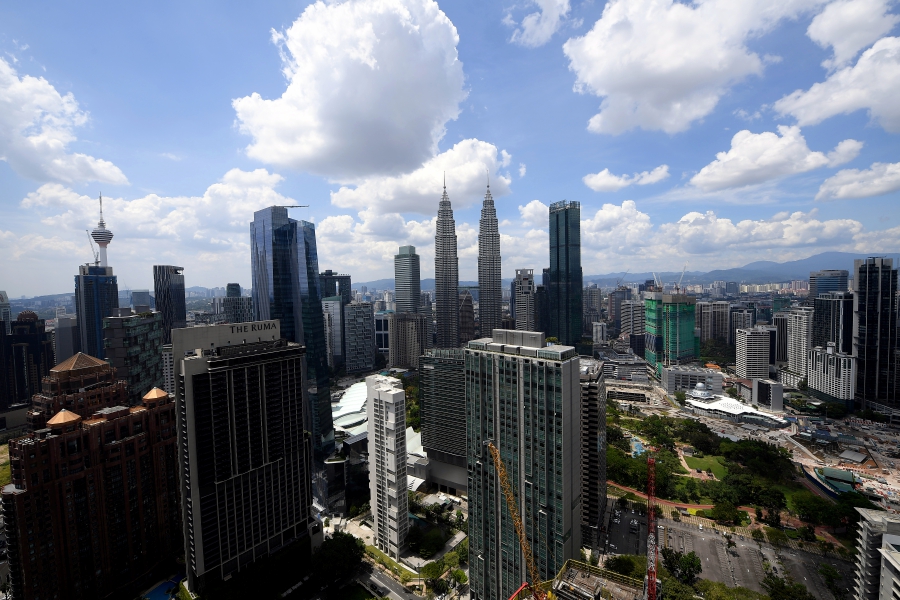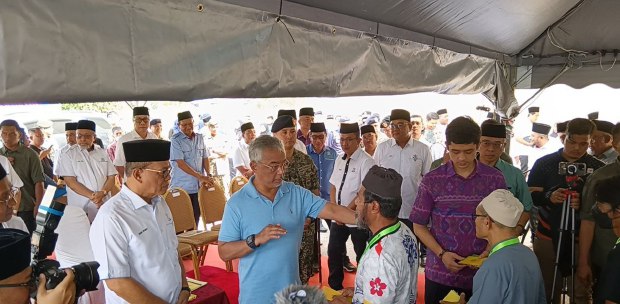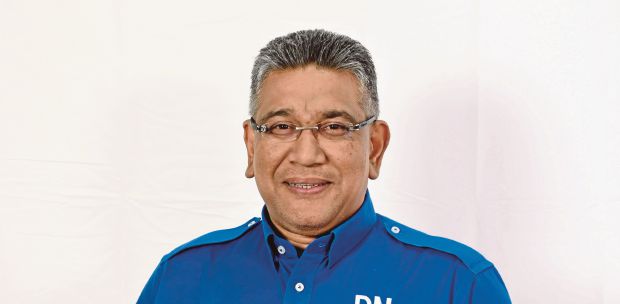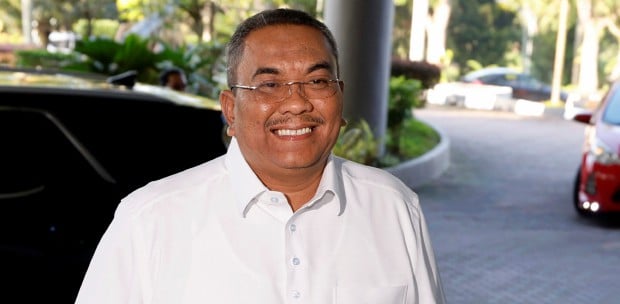MY breakfast routine today was greeted with a front-page headline "Lompat Parti Tak Salah" in a local Malay language daily.
I could be wrong, but that headline seems to imply that it is okay to jump ship, betray your promise of loyalty and allegiance to your party, and desert the people in your constituency who voted you into the federal or state legislature.
It instantly reminded me of an event a long time ago. I had requested a good friend to take me for a visit to the home of an Umno veteran, Tan Sri Khalid Abdullah. A contemporary of Tun Dr Mahathir Mohamad, he was a former State Assemblyman (for Alor Merah), a former Senator and former Executive Chairman of Utusan Melayu.
As the visit was planned much earlier, he was waiting in front of the house as we reached his place and he warmly greeted me as I came towards him, although we had never met before.
Later, after coffee had been served, I posed him the question that I had planned a long time – "Is there any difference between Umno members today and Umno members during your time?"
"Banyak beza. Dulu kita masuk Umno untuk berkhidmat. Sekarang ni, mereka masuk Umno nak cari kedudukan dan kekayaan", he replied. Then he explained what he meant by those words.
I met him a couple of times after that, the last meeting at the Kepala Batas airport as we were both taking a flight to Kuala Lumpur. He passed away last year (November 18, 2020) of old age, but I will never forget his words – for they remain loud and true until today.
In March last year, Wanita Umno veteran, Tan Sri Rafidah Aziz, chastised "chameleon politicians" who made conflicting statements, "confusing the rakyat and turning the nation topsy-turvey" to serve their own ends.
Last Saturday, whilst participating in a talk show "Mak Kata Jangan" organised by a daily in Selangor, she urged politicians who are currently involved in court cases to step back and not take part in the forthcoming 15th general election (GE15).
Unfortunately, she said many of these people have "tebal muka" (thick faces) and have no shame in also wanting to offer themselves as candidates, reported by another Malay daily with the heading "Calon PRU bebas skandal" last Sunday.
Meanwhile, a research conducted in six Asian countries recently showed that the governments in Malaysia, Philippines, India and Japan "reflect their weak political will" in combating corruption, unlike the governments in Singapore and Macau which are committed in the investigation and punishment of the corrupt offenders.
I am not sure of the accuracy of the research findings, but they are certainly a cause for concern. According to Transparency International, the Corruption Perception Index (CPI) for 2020 showed that Malaysia had dropped six spots from 51 to 57, out of 180 countries. Not only we are not getting better, we are in fact getting worse.
The Transparency International official portal defines political integrity as "exercising political power consistently in the public interest, independent from private interests, and not using power to maintain the office holder's own wealth and position". Political integrity is only possible when safeguards exist throughout the political process.
It defines "political corruption" as the manipulation of policies, institutions, rules of procedure and decisions by political decision-makers to abuse their position for private gain. These include gross conflict of interests, abuse of state resources, and "godfathers" (businesses funding political candidates to turn them into their clients).
Integrity is closely connected to trust, a quality that is unfortunately in short supply. A foreign news portal said that "Trust in politicians has been on the decline. This is in line with international trends."
The portal added that "There is some evidence in Australia that trust goes up when there is a change of government – and then goes down".
Yes, we see the same picture over here too.
The writer, a former federal counsel at the Attorney-General's Chambers, is deputy chairman of the Kuala Lumpur Foundation to Criminalise War






